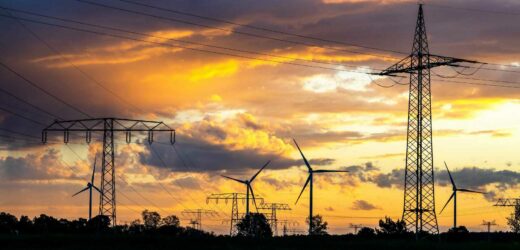HOUSEHOLDS will get just £10 a day to cut their energy use if blackouts hit the UK – and there's a catch.
The National Grid has warned that parts of the UK could be without power for up to three hours this winter.
In order to prevent the power cuts, households are being urged not to use certain appliances, such as washing machines, at peak times as a means of saving energy.
That could mean putting on the dishwasher or washing machine overnight or charging an electric vehicle at off-peak times.
But it has been revealed that Brits will get just £10 a day in return – and only if they have a smart meter.
Around 27.8 million households had a smart meter at the end of 2021, according to government figures.
READ MORE ON ENERGY
Thousands can get £100 free cash for food, energy bills and essentials
Major energy firm to give thousands of customers extra £150 for winter
Prime Minister Liz Truss said that the UK has "good energy supplies" before adding that "we can get through the winter".
Former Conservative Party leader Iain Duncan Smith told the MailOnline that it seems "cynical that only people with smart meters can benefit".
People are being encouraged to sign up with their electricity supplier for the scheme which will give them money back on their bills.
The "demand flexibility service" will run from November to March, and it is being introduced to help prevent blackouts.
Most read in Money
Exact date Universal Credit recipients will get second COL payment
2-bed home in swanky York on sale for £175k…but wait till you see the walls
Households to be PAID to use appliances at off-peak hours
Brits to face blackouts this winter – and power could be cut for 3 hours a day
The scheme will run 12 times to ensure people are rewarded, even if there are no blackouts this winter.
Without the scheme, there could be cold days creating a demand that outstrips supply.
It would then mean certain areas of the UK, would be warned of planned blackouts.
According to the National Grid, in this scenario, there would be a potential need to interrupt the supply to some customers for limited periods.
Colder temperatures during the winter naturally lead to more energy being consumed as people turn the heating on and have to use electricity for longer periods of the day.
The risk is that since Russia’s flow of gas to Europe has stopped there is less supply which can be imported to Britain.
The Grid said that the exact number of people left without electricity would depend on how many bigger energy intensive factories are powered down to conserve energy for households.
However, it is thought that chunks of cities will be powered down at a time.
Yesterday, Ovo Energy announced that its customers could get up to £100 back by shifting their energy usage to off-peak times.
The company is looking for participants to cut their average consumption between 4-7pm to less than 12.5%.
Ovo said that for the average household, that could be the equivalent of moving three loads of washing per week from peak time to a greener time of day.
The energy supplier will pay the average customer £20 each month this is achieved.
Why could there be blackouts this winter?
There has been unprecedented turmoil in energy markets in Europe, due to shortfalls in gas caused by Russia's invasion of Ukraine.
Around 40% of the UK's electricity supply is generated from gas.
The National Grid says we are expecting a "challenging" winter and it is planning for what would happen if we're unable to import electricity from Europe meant the UK didn't get enough gas.
Previously the National Grid has always said that if there were planned blackouts, that these would only affect big business and not households.
To tackle a loss of imports from France, Belgium and the Netherlands, there are two gigawatts of coal-fired power plants on stand-by to fire up if needed to meet demand.
When could they happen?
If there are days this winter that are cold – creating high demand and low levels of wind power – then National Grid may need to interrupt supply for limited periods.
The worst period for supply is likely to be throughout December to mid-January, excluding the Christmas period.
The National Grid says that they would be planned three-hour blackouts in some areas.
The outages would be at peak times, which means power cuts could be in the evenings.
The number of people left without electricity would depend on how many gas power stations would be forced to shut down because there is not enough gas.
Electricity generators would choose where to have outages based on how much supply they need to cut.
It means if there are planned power cuts then they would be in one area at a time, not the whole of the UK.
It did warn that this is a worst case scenario.
And, I'll be paid to use less electricity?
People are being encouraged to sign up with their electricity supplier to a scheme which will give them money back on their bills to shift their use of power away from times of high demand to help prevent blackouts.
Households could be paid to put their washing machines or dishwashers overnight.
In addition, larger businesses will be paid for reducing demand, for example by shifting their times of energy use or switching to batteries or generators in peak times.
Don't energy firms already offer cheaper tariffs for off-peak supplies?
Yes, that's right. Some energy firms offer off-peak usage tariffs which are cheaper at night. These are usually called Economy 7 tariffs.
It means that households have to run appliances or charge electric cars during off-peak times.
Energy firms are expected to offer their own schemes.
Read More on The Sun
I ‘un-school’ my kids while living in a van – people judge but they’re wrong
Drivers warned parking their car overnight could lead to hefty fines
For example, Ovo has announced its plans and says customers who opt in could save £100 on bills.
Octopus energy has already been trialling a scheme which pays customers to cutting usage.
Source: Read Full Article











